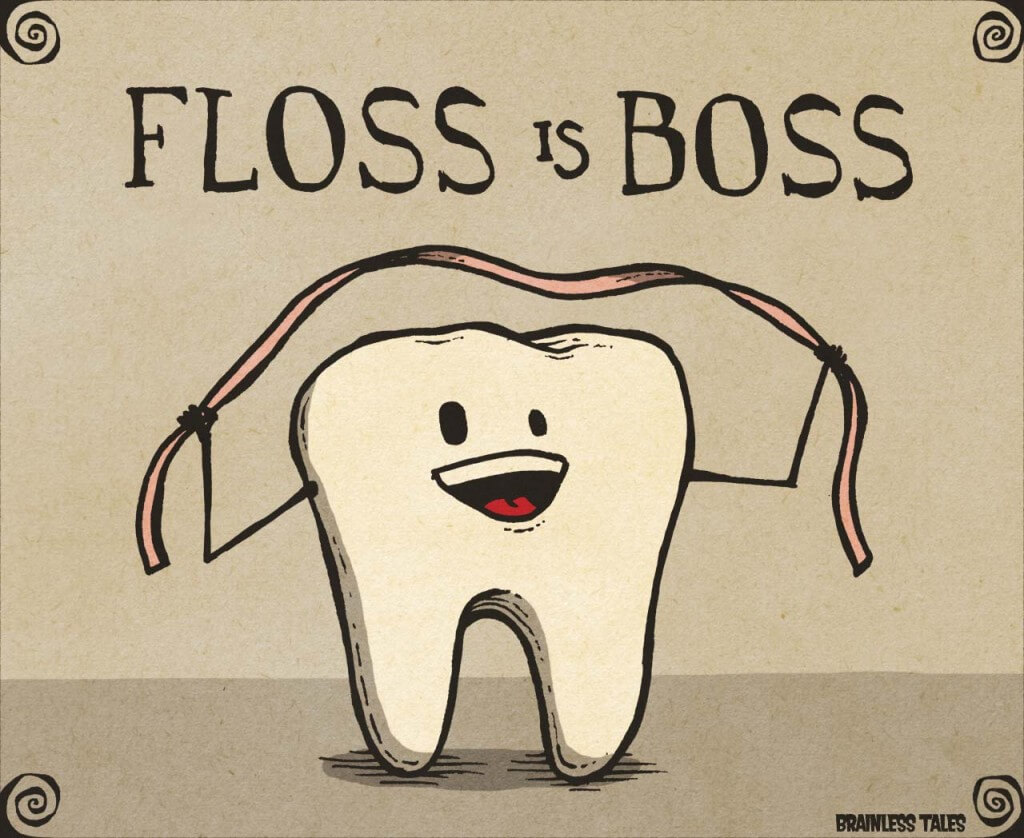Flossing and its impact on oral hygiene
Blog by hygienist Amy Stevens
Following articles in various national newspapers recently there has been an increased interest in the topic of flossing. There have been headlines stating that flossing teeth has no health benefit! This is after the US health department removed flossing from their daily recommendations.
What the headline should have said was “flossing compared to interdental brushes according to the evidence is not as effective”.
Flossing is still an important part of your oral hygiene routine but it is only one form of interdental cleaning; there are many other options. Flossing has been recommended in America since 1979 – after 37 years it is not surprising that other, more effective methods have been introduced.
For example, some people may still prefer to use a manual toothbrush, although evidence now shows that rechargeable electric toothbrushes (not battery operated brushes) are more effective at removing plaque. Flossing is now in the same realm as manual toothbrushes. Yet the effectiveness of the cleaning will ultimately come down to the technique of the patient.
The Head of Periodontology within the Institute of Clinical Sciences Professor Iain Chapple states that floss has no benefit in patients who may have gaps between their teeth due to a history of gum disease. However there is evidence that interdental brushes are effective at reducing plaque levels and inflammation.
This is not to say floss doesn’t have a role to play. In a healthy mouth where there are no gaps between your teeth it may not be possible to fit an interdental brush between the teeth, in this situation floss is recommended at preventing gum disease and keeping the teeth and gums healthy.
Advisors at the British Dental Association support this; they state small interdental brushes are preferable for cleaning the area in between the teeth where there is space to do so.
The British Society of Periodontology issued a press release this week stating “daily cleaning between your teeth using special interdental brushes is essential for treating and preventing gum disease. Floss is of little value unless the spaces between your teeth are too tight for the interdental brushes to fit without hurting or causing harm”.
Therefore, flossing is not a waste of time and it is still a viable alternative to interdental brushing where appropriate.Everybody is different so I recommend speaking to your dentist or hygienist who can advise on the best option and technique specific to you, some people may need a range of different sized interdental brushes as well as floss for tighter gaps. So the answer to the question, do you need to floss?
You only need to floss the teeth you want to keep!
The daily oral hygiene routine
– First, clean interdentally using either floss, super floss or interdental brushes
– Then brush for at least 2 minutes with an electric toothbrush
– Use 1400ppm fluoride toothpaste and spit but don’t rinse the toothpaste away
– Do this twice a day
Some people may also benefit from using an alcohol free fluoride mouthwash at a separate time to brushing for further protection against decay.
Hygienist Liverpool Street
If you need a hygienist appointment, please don’t hesitate about contacting us. We pride ourselves on giving you the first-class care you need to keep your smile healthy. You can book online via our contact form for a hygienist appointment in Liverpool Street or call us on 020 7377 6762.

